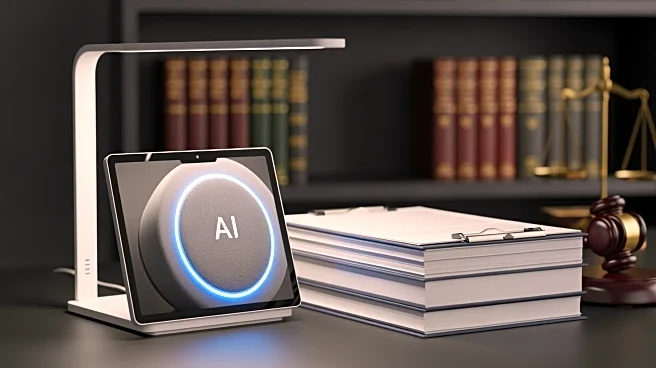What's Happening?
The Massachusetts Office of Bar Counsel has released guidance for lawyers on the use of artificial intelligence (AI) in drafting legal documents. This follows a series of incidents where lawyers were sanctioned
for submitting pleadings with fake case citations generated by AI tools. The guidance emphasizes the ethical obligations of lawyers to ensure the accuracy of their filings and to supervise subordinate lawyers and nonlawyers effectively. The document highlights recent sanctions imposed on Massachusetts lawyers and suggests that similar actions are being taken in other jurisdictions. The guidance advises lawyers to exercise caution when using AI, communicate with colleagues about AI usage, and verify all citations before filing documents in court.
Why It's Important?
The guidance from the Massachusetts Office of Bar Counsel underscores the growing challenges and responsibilities faced by legal professionals in the digital age. As AI tools become more prevalent in legal practice, the potential for errors and ethical breaches increases. This development is significant for the legal industry as it highlights the need for robust oversight and verification processes to maintain the integrity of legal proceedings. Lawyers and law firms must adapt to these technological advancements while ensuring compliance with professional standards. The broader implication is a call for the legal community to develop best practices for AI usage to prevent similar issues in the future.










